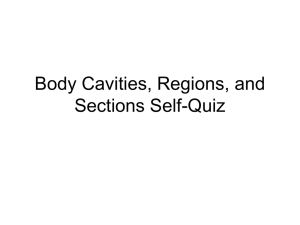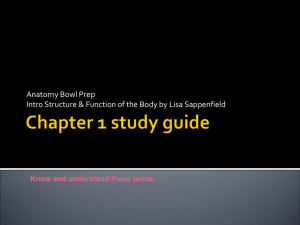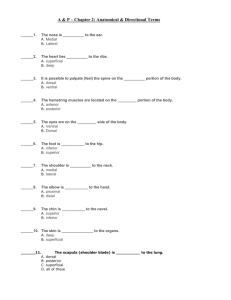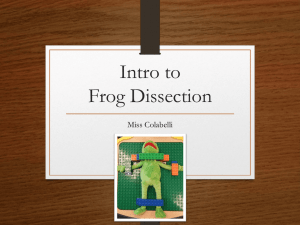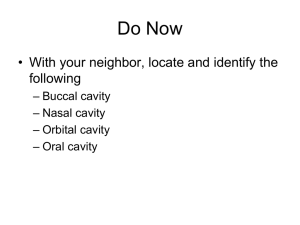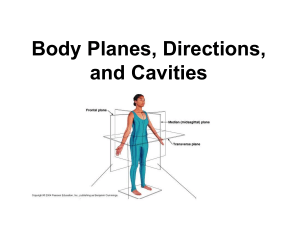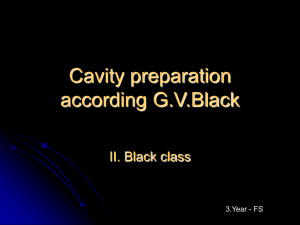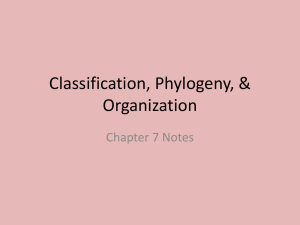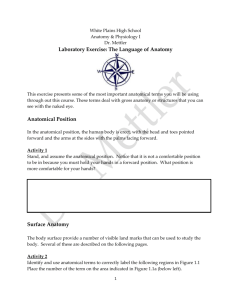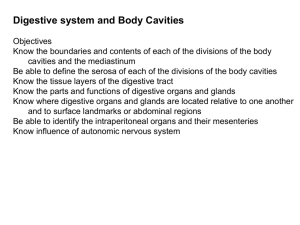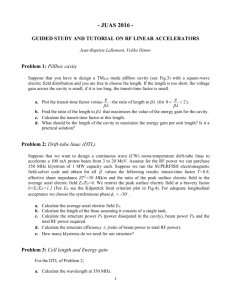Anatomical planes and regions 674KB Mar 17 2014 11:52:22 AM
advertisement
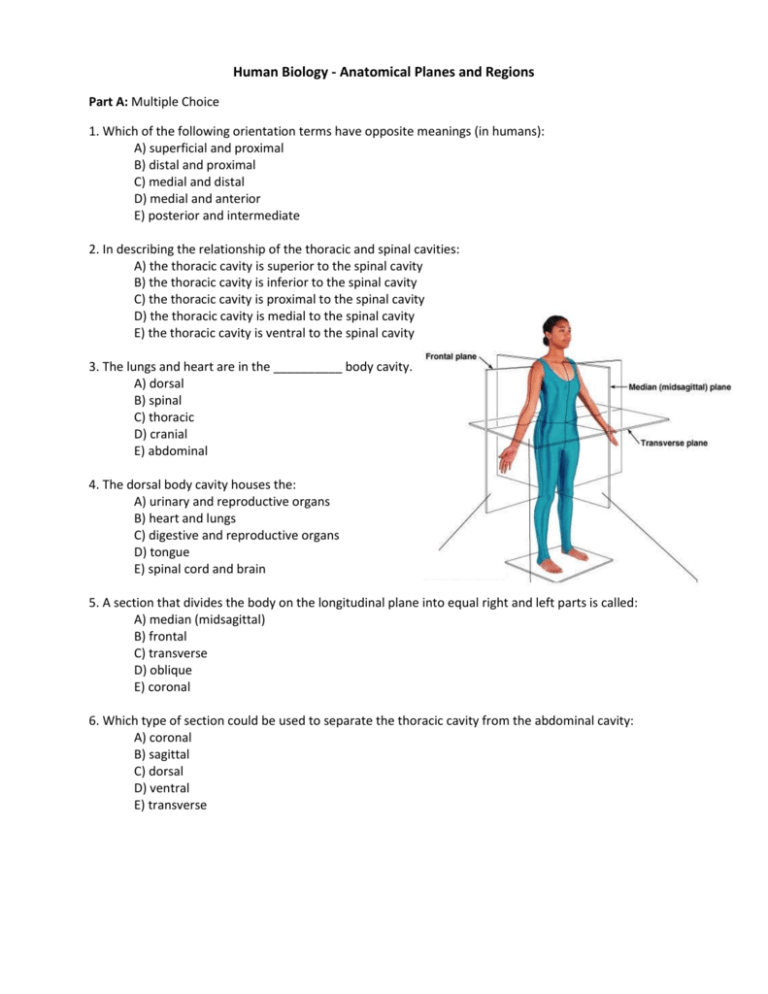
Human Biology - Anatomical Planes and Regions Part A: Multiple Choice 1. Which of the following orientation terms have opposite meanings (in humans): A) superficial and proximal B) distal and proximal C) medial and distal D) medial and anterior E) posterior and intermediate 2. In describing the relationship of the thoracic and spinal cavities: A) the thoracic cavity is superior to the spinal cavity B) the thoracic cavity is inferior to the spinal cavity C) the thoracic cavity is proximal to the spinal cavity D) the thoracic cavity is medial to the spinal cavity E) the thoracic cavity is ventral to the spinal cavity 3. The lungs and heart are in the __________ body cavity. A) dorsal B) spinal C) thoracic D) cranial E) abdominal 4. The dorsal body cavity houses the: A) urinary and reproductive organs B) heart and lungs C) digestive and reproductive organs D) tongue E) spinal cord and brain 5. A section that divides the body on the longitudinal plane into equal right and left parts is called: A) median (midsagittal) B) frontal C) transverse D) oblique E) coronal 6. Which type of section could be used to separate the thoracic cavity from the abdominal cavity: A) coronal B) sagittal C) dorsal D) ventral E) transverse Part B: Name the body cavity using the terms provided. (D refers to the barrier separating cavities C and E.) Word Bank: Thoracic, Cranial, Abdominal, Vertebral, Pelvic, Diaphragm ________________________ ________________________ ________________________ ________________________ ________________________ ________________________ Part C: Match the term to its meaning. 1. Inferior _______ 2. Posterior _______ A. toward the midline B. toward the side C. close to the body part of point of 3. Lateral _______ 4. Deep _______ 5. Distal _______ attachment of a limb D. below E. in front of F. farther from the origin of a body part or 6. Medial _______ 7. Superior _______ 8. Proximal _______ 9. Anterior _______ point of attachment of a limb G. away from the body surface H. toward the body surface I. above J. behind Part D: Name the plane. Transverse, Sagittal or Frontal 1. Cut is made along the longitudinal (lengthwise) plane of the body (or an organ), dividing it into right and left parts. _____________________ 2. Cut is made along the longitudinal (lengthwise) plane of the body (or an organ), dividing it into anterior and posterior parts. ____________________ 3. Cut is made along the transverse (horizontal) plane, dividing the body into superior and inferior parts. ____________________________ Part E: Fill in the blank using the correct anatomical terms: superior, inferior, anterior, posterior, medial, lateral, proximal distal). 1. The wrist is ________________ to the hand. 2. The sternum is _______________________ to the spine. 3. The brain is ________________________ to the spinal cord. 4. The thumb is _______________________ to the fingers. 5. The metacarpals are ______________________ to the carpals. 6. The patella is ____________________ to the femur. 7. The _________________ end of the clavicle joins with the scapula to form the shoulder joint. 8. The axis is ________________ to the atlas.
